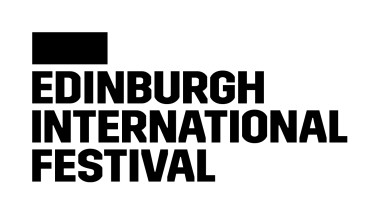
 United Kingdom Edinburgh International Festival 2017 [7] – Monteverdi, L’Orfeo: English Baroque Soloists, Monteverdi Choir / John Eliot Gardiner (conductor), Usher Hall, 14.8.2017. (SRT)
United Kingdom Edinburgh International Festival 2017 [7] – Monteverdi, L’Orfeo: English Baroque Soloists, Monteverdi Choir / John Eliot Gardiner (conductor), Usher Hall, 14.8.2017. (SRT)

Cast:
Orfeo – Krystian Adam
La Musica, Euridice – Hana Blažíková
Messenger – Lucile Richardot
Proserpina – Francesca Boncompagni
Charon, Pluto – Gianluca Buratto
Hope – Kangmin Justin Kim
Apollo – Furia Zanasi
Production:
Directors – John Eliot Gardiner, Elsa Rooke
Costumes – Isabella Gardiner, Patricia Hofstede
Lighting – Rick Fisher
In this, the EIF’s 70th anniversary, director Fergus Linehan has pushed out the boat with more opera performances than usual, recognising that opera was a critical part of getting the first festival off the ground. When that coincided with the 450th anniversary of the birth of Claudio Monteverdi, a golden opportunity presented itself. Throw into the mix John Eliot Gardiner, an artist with whom the EIF has worked hard to cultivate a relationship during Linehan’s tenure, and you have a little spark of magic.
Gardiner has always spoken of how special Monteverdi is to him – he named his flagship choir after him, after all! – and for this anniversary year he has prepared a trilogy of the operas to celebrate the composer in a fresh, dynamic way. He writes in the programme note that he wants to “put the excitement, and perhaps also the trepidation, back into [Monteverdi’s] music.”
That was evident in every element of this tremendously involving performance. This was billed as a concert performance and, true, there was no proscenium and no painted flats. In every other sense, however, it was as compellingly theatrical a performance as I’ve seen, with costumes, lighting and a use of the Usher Hall space that turned it into a theatrical space as effective as any in Edinburgh.
Gardiner divides his instrumentalists into two separate groups (high strings to the left, lower strings to the right), and much of the acting takes place in the space between them. However, the costumed singers use every inch of the Usher Hall space, ranging from the back of the organ gallery to the auditorium, to evoke the various locations of the story, and the effect is compelling and utterly involving. Even little touches, such as darkening the stage for the scenes in Hades, added to the overall sense of engagement, and I loved the way the soloists would often interact with the musicians to highlight certain elements of their playing, and thus underlining the revolutionary role that Monteverdi’s music plays in the drama.
The cast were all remarkably sensitive to the demands of the Renaissance style – where else will you hear such vocal trills? – and excelled in the way they brought the drama to life. We were warned that Krystian Adam was suffering from a throat infection, but there was no sign of that in his lithe, athletic Orfeo, light of voice in the opening scenes, but darkening considerably for the descent into Hades and for his great Possente spirto. Hana Blažíková was utterly remarkable as both Euridice and La Musica in the Prologue. While she doesn’t have a lot to sing, her bright yet dusky voice made an unforgettable impression, and she glided her way around the stage in an otherworldly manner that made her interaction with the musicians strangely beautiful. Gianluca Buratto fulminated brilliantly as Charon, and resonated with authority when delivering Pluto’s conditions, and I loved the chilly soprano of Francesca Boncompagni as his wife, displaying more affection for him than many myths would have us believe. The lesser roles were all taken well, including the beautifully blended shepherds of the opening scene, and a wonderfully poignant Messenger from Lucile Richardot.
In this midst of it all, like some presiding spirit, stood Gardiner himself, bringing his lifetime of experience with Monteverdi to bear on a reading of authority but also great sympathy, and his musicians rose to the occasion with great alacrity. The winds provided exceptional colour when required, but I particularly liked the sensitivity of the strings, who could bounce with joy during the early scenes, but also produce sounds of unbearable poignancy when required, such as at the disarmingly moving departure of the Messenger. The chorus were every bit as nuanced, whether they were dancing in celebration or weeping in mourning.
In short, this was a treat, and the best of it is that there’s more to come. Il Ritorno d’Ulisse will be performed on Tuesday 15th August, and L’incoronazione di Poppea on 17th August. Watch this space!
Simon Thompson
The 2017 Edinburgh International Festival runs until Monday 28th August at venues across the city. For full details go to www.eif.co.uk.